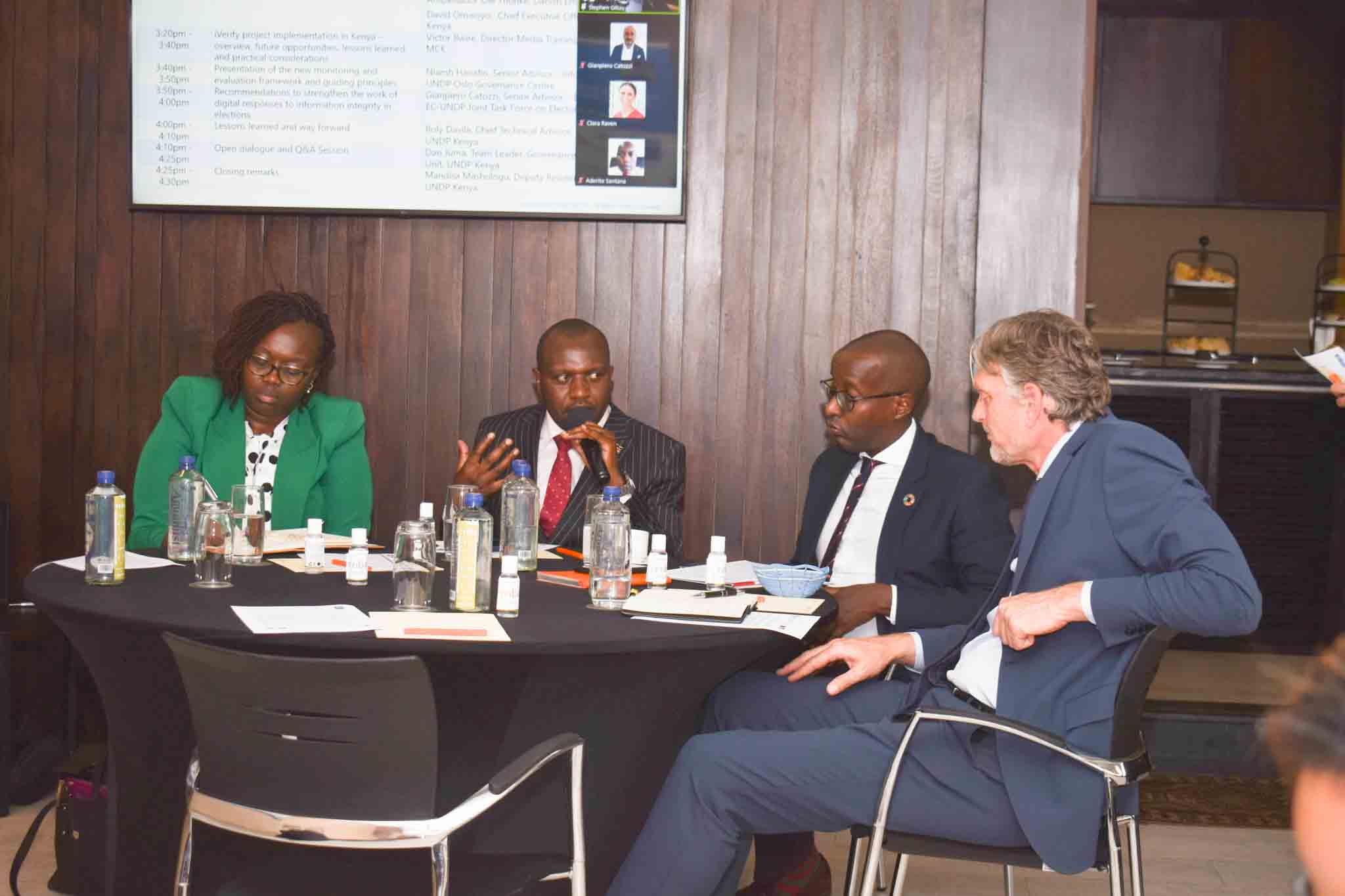
The Media Council of Kenya (MCK) has called for enhanced collaborations to combat information pollution that is rampant especially during electoral process.
MCK CEO Mr David Omwoyo says achieving real and verifiable information is possible without infringing on people’s fundamental rights.
“Partnerships are important in addressing misinformation as it can jointly push for combination of measures around technology, civic education, regulation while allowing freedom of expression”, said Mr Omwoyo at a meeting to evaluate the impact of digital responses on electoral information integrity meeting held by MCK in partnership with the UNDP and the Government of Denmark’s Tech for Democracy Initiative.
He said that civic education among the masses was key in creating awareness in identifying the filtration of misinformation.
“There is need for public education on how to identify and filter false information towards what is relevant. This will require the involvement of the civil society, government and the national assemblies in coming up with regulation without stifling freedom of expression and of the media”, he added.
He underscored the importance of Artificial Intelligence in speedy verification of information, noting the dire effects of misinformation on the people.
“Deploying technology and Artificial Intelligence will hasten the verification process while eliminating the physical part. By doing so, we will have lesser incidences and hence protect the integrity of relevant information”, said Mr Omwoyo.
“The challenge of failing to act is that the people are inundated with lots of noisy irrelevant information where they can lose out on what is critical”, said Mr Omwoyo.
He urged for enhanced collaboration between the partners saying that the Council was keen on integrating the fact-checking platform iVerify and normalising it in its workings.
UNDP Resident Representative Mr Anthony Ngororano underscored the importance of evaluation of the learnings that come with the use of the iVerify platform during the elections in Kenya.
“This is an important milestone on the reflection of the iVerify journey in the Kenyan context. The platform was mainly used to stem out issues of misinformation and disinformation during the election period”, noted Mr Ngororano.
He said that the learnings from the project will enable the partners to better understand the emerging issues associated with the process and how to manage them.
He observed that media monitoring was a major component of the project which is complimented by the use of Artificial Intelligence to debunk information in real time.
Danish Ambassador to Kenya Mr Ole Thonke spoke on Tech for Democracy initiative saying that Kenya was one of the most tech savvy countries in Africa.
“Technology has a huge impact in moving the economy in Kenya. There is potential for more and we have seen a goodwill from the political side. The introduction of MPESA brought about a revolution on mobile money transfer and this has shown that Kenyans are receptive to technology leading to innovation”, opined Ambassador Thonke.
The envoy noted how technology was misused during the General Election leading to the spread of misinformation and hate speech with the victims being mostly women.
He urged the partners to take part in creating public awareness on the use of technology and issues around fake news, urging them to leverage on its use as a tool for democracy. He affirmed the Danish government support.
The iVerify Network for Fact Checking Desk was introduced in Kenya last year through a partnership between the Media Council of Kenya and UNDP. The platform aided in the debunking of misinformation, disinformation and hate speech mostly associated with elections.